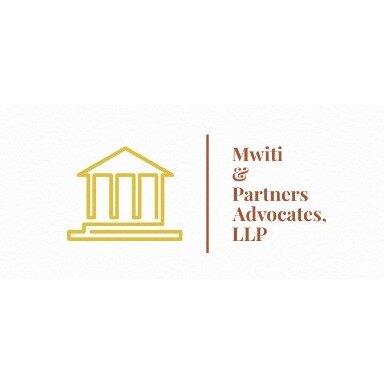Best Franchising Lawyers in Kenya
Share your needs with us, get contacted by law firms.
Free. Takes 2 min.
Or refine your search by selecting a city:
List of the best lawyers in Kenya
Legal guides written by Adroit Law LLP:
- Kenya Launches Digital Nomad Visa: A Gateway for Remote Workers
- Navigating the Payment System License Maze in Kenya
- Navigating the Complexities of Mining Licenses and Permits in Kenya: A Look into Artisanal and Large-Scale Operations
About Franchising Law in Kenya
Franchising in Kenya has been gaining momentum as a viable and attractive business model. It involves a franchisor providing a franchisee with the rights to operate a business under its brand and business model. Although franchising is relatively new in Kenya, it has tapped into various sectors like fast food, retail, education, and hospitality. The Kenyan government has increasingly shown interest in regulating this sector to promote transparency, protect investors, and encourage entrepreneurship. However, franchising laws are still evolving, and potential franchisors and franchisees must conduct thorough due diligence and seek legal advice to navigate this landscape effectively.
Why You May Need a Lawyer
Engaging in franchising requires careful legal consideration due to the complexity and potential risks involved. Here are common situations where legal assistance might be crucial:
- Reviewing franchising agreements: A lawyer can help you understand the terms and obligations in a franchising agreement, ensuring your rights are protected.
- Negotiating contracts: Legal expertise can be invaluable in negotiating terms that are fair and favorable to either party.
- Compliance with local regulations: Ensuring that your franchise complies with Kenyan laws and regulations can save you from potential legal disputes or penalties.
- Dispute resolution: If conflicts arise between franchisor and franchisee, a lawyer can help mediate and resolve these issues effectively.
- Franchise termination: Understanding your rights and obligations when it comes to terminating a franchise agreement can prevent unnecessary legal battles.
Local Laws Overview
Franchising in Kenya is governed by various laws that touch on contract, competition, intellectual property, and commercial practices. Some key aspects include:
- Competition Act: This regulates fair trade and competition, impacting franchising agreements, especially concerning pricing and market control.
- Consumer Protection Act: Franchisors must ensure their practices do not harm consumers and that they offer fair terms to franchisees.
- Intellectual Property Laws: Protect the franchisor's trademarks, trade secrets, and copyrights, allowing them to enforce rights against unauthorized users.
Other applicable regulations might include taxation laws, employment laws, and those governing foreign investments for international franchise brands entering the Kenyan market.
Frequently Asked Questions
What is franchising?
Franchising is a business model where a company (franchisor) grants another party (franchisee) the right to operate a business using its brand, products, and operational model.
Is franchising regulated in Kenya?
While there is no specific franchising law enacted yet, various general commercial laws apply, such as the Competition Act and Consumer Protection Act, to address franchising activities.
Do I need legal advice to enter into a franchise agreement?
It is highly recommended to consult a lawyer. Legal advice ensures that you understand the obligations, risks, and protections under the franchise agreement.
How can disputes in franchising be resolved?
Disputes can be resolved through mediation, arbitration, or court proceedings. The method often depends on the franchise agreement's dispute resolution clause.
Can a franchisee use the franchisor’s trademark indefinitely?
No, the use of a franchisor’s trademark is typically governed by the franchise agreement, which stipulates terms and duration of use.
What are the typical fees associated with franchising?
Typical fees include an initial franchise fee, ongoing royalty payments, and marketing fees, as stipulated in the franchise agreement.
Are there any investment restrictions for foreign franchisors in Kenya?
Foreign franchisors must adhere to regulations concerning foreign investments and may face additional scrutiny in terms of ownership and operation.
What happens if a franchisee fails to adhere to the franchising agreement?
The franchisor may have the right to terminate the agreement or seek damages, depending on the breach's nature and the agreement terms.
Can the terms of a franchise agreement be negotiated in Kenya?
Yes, although some elements may be standardized, parties can negotiate aspects of the agreement to suit their needs and interests.
How long does a franchise agreement last?
The duration varies depending on the individual contract, but typical franchise agreements may last between 5 to 20 years, subject to renewals.
Additional Resources
Several resources can help individuals seeking legal advice on franchising in Kenya:
- Law Society of Kenya (LSK): A professional body for lawyers in Kenya, providing access to legal practitioners specializing in franchising law.
- Kenya Investment Authority (KenInvest): Offers guidance on foreign investments and compliance requirements for franchisors entering Kenya.
- Kenya Private Sector Alliance (KEPSA): A network of private sector stakeholders that may provide insights and support in business operations, including franchising.
- Kenya National Chamber of Commerce and Industry (KNCCI): Provides business-related support and can connect franchisees and franchisors to opportunities and resources.
Next Steps
If you are considering entering the franchising sector in Kenya and need legal assistance, follow these steps:
- Identify your needs: Clearly outline your requirements, whether drafting a new agreement, reviewing existing contracts, or resolving disputes.
- Research lawyers: Look for law firms or legal practitioners with expertise in franchising law and relevant local knowledge.
- Schedule consultations: Arrange meetings with potential lawyers to discuss your case, their approach, and fee structures.
- Engage legal services: Select a lawyer or firm based on expertise, experience, and your comfort with them to handle your legal matters.
- Stay informed: Continuously educate yourself on changes in franchising laws and practices to make informed decisions.
Lawzana helps you find the best lawyers and law firms in Kenya through a curated and pre-screened list of qualified legal professionals. Our platform offers rankings and detailed profiles of attorneys and law firms, allowing you to compare based on practice areas, including Franchising, experience, and client feedback.
Each profile includes a description of the firm's areas of practice, client reviews, team members and partners, year of establishment, spoken languages, office locations, contact information, social media presence, and any published articles or resources. Most firms on our platform speak English and are experienced in both local and international legal matters.
Get a quote from top-rated law firms in Kenya — quickly, securely, and without unnecessary hassle.
Disclaimer:
The information provided on this page is for general informational purposes only and does not constitute legal advice. While we strive to ensure the accuracy and relevance of the content, legal information may change over time, and interpretations of the law can vary. You should always consult with a qualified legal professional for advice specific to your situation.
We disclaim all liability for actions taken or not taken based on the content of this page. If you believe any information is incorrect or outdated, please contact us, and we will review and update it where appropriate.
Browse franchising law firms by city in Kenya
Refine your search by selecting a city.

















